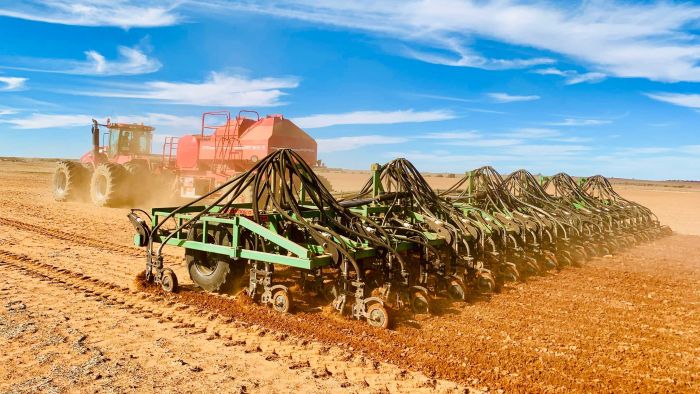Australian grain farmers have stopped sowing barley mid-stream in some paddocks as they brace for lower prices and the prospect of losing a major market in a brewing trade storm.
Key points:
- Grain groups say Chinese tariffs could total up to 80 per cent and threaten the viability of the $1.5 billion barley trade into China
- Some farmers indicate they are switching mid-stream from barley to wheat plantings to avoid such tariffs
- Others are not worried, believing the feed barley market in eastern Australia will keep prices stable
At the weekend, farmers were told by Australian grain groups that China was proposing to place tariffs on barley imported from Australia as a result of an 18 month anti-dumping and countervailing duties investigation.
The tariffs, which grain groups said could total up to 80 per cent, threaten the viability of the $1.5 billion barley trade into China.
About 88 per cent of Australia’s barley exports to China come from Western Australia, and some growers in that state were now changing their cropping plans mid-way through seeding.

Farmers move augers into wheat
Alan Sattler, who farms at Beverley and Kellerberrin in the WA Wheatbelt, has sown most of his barley crop already, said he woul

